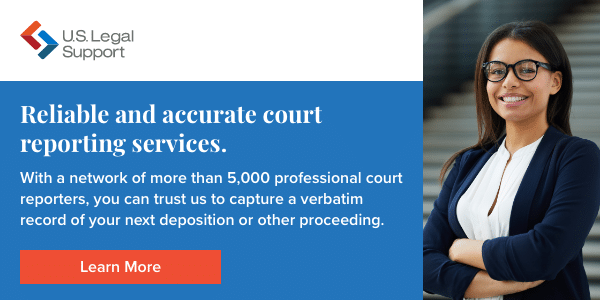Best Practices to Secure Law Firm Documents

Law firms handle confidential information and documents that require diligent protection. The stakes are high, the regulations and their sources are vast, and technology is sophisticated and ever-changing.
Evaluating, monitoring, and improving security procedures and platforms is an ongoing responsibility for law firms. To protect your client and case data, consider the following strategies and best practices.
#1 Cover the Basics
Before you explore the complexities of regulations and cybersecurity frameworks for securing law firm documents, revisit your basic policies and procedures at a user level within your firm. Securing your legal documents starts with1:
- Written policies and regular staff training on document security
- Centralized legal document management to prevent untraced copying and sharing across devices
- Controls for both digital and paper legal files that limit access to those who need it
- Secure file exchange systems vs. email attachments
#2 Review Intersecting Security Protocols
Data security doesn’t only rest in your team’s hands. Firms of all sizes rely on partners, service providers, and subcontractors throughout the life of the legal files they handle.
Audit current relationships and investigate new ones thoroughly to evaluate security protocols at product and contractual levels for:
- Platforms and software, including settings or access that can be bypassed by users
- Outsourced service providers (and their platforms, software, and subcontractors)
- Employee devices, network security at all document access locations, and offline handling
To protect your data effectively, select partners that:
- Implement third-party auditing and attestation of key compliance areas
- Utilize intrusion detection and prevention systems
- Conduct third-party penetration testing
- Offer frequent backups and replications across geographically dispersed data centers
- Have a disaster recovery plan in place
#3 Identify Regulatory Bodies
There is no single set of rules pertaining to the security of law firm documents. A particular file may fall under multiple sets of regulations, so which rules must you heed? Identify the authorities that publish requirements and recommendations that you must—or should—follow:
- Applicable legal jurisdictions, including state, federal, and international agencies
- Industry-specific regulations such as HIPAA that govern types of data
- Professional boards and association guidelines or standards such as ABA Model Rules
- Your firm’s specific policies and procedures related to document security
Rather than complying with the minimum requirements that protect you from civil, criminal, or professional sanctions, consider following more comprehensive and forward-looking bodies of governance such as:
- SOC 2 Type 2 certification – A SOC 2 Type 2 report and audit assesses and ensures that a service organization’s controls effectively meet security, confidentiality, and privacy standards.
- NIST CSF – The NIST Cybersecurity Framework (CSF) is a voluntary framework that helps organizations understand, assess, prioritize, and communicate their cybersecurity policies, procedures and controls.
- HIPAA third-party verification – While HIPAA compliance in law firms is crucial, voluntary review by a reputable independent auditor can provide attestation of an organization’s compliance.
#4 Preserve Your Breadcrumbs
The life of a particular document in your firm’s hands is much more complex than the check-in and check-out of a library book. Often, a sensitive document doesn’t simply move, but multiplies. For example, a medical record could grow to:
- The original retrieved file
- Converted files in different formats, including for court evidence guidelines
- A redacted copy with blacked-out sensitive data
- An annotated copy that connects to notes by a medical record reviewer
- Marked-up copies or extracted data for research or strategy planning by the legal team
- A copy—or extracted data—provided to a designer to create a courtroom exhibit
- The courtroom exhibit containing the relevant data
Secure data governance includes:
- Digital footprints that trace dates, times, and users who access, alter, or copy the file
- Eliminating unnecessary file copies
- Documenting the connection of each offshoot to the original source file
#5 Assign Responsibility
With the frequent changes in both regulations and technology, leading firms assign and communicate clear responsibility of data security across functions and teams. Task the right people with responsibility, from overall cybersecurity leadership to individual legal matters that open new jurisdictional issues such as cross-borders data protection.
Prioritize Data Privacy and Security With U.S. Legal Support
The inability to secure your legal documents can steal your firm’s time, reputation, clients, and money—in 2024, the average global cost of a data breach rose to $4.88 million.2 Following best practices and investing in systems, procedures, and partners to enhance confidentiality and compliance are key ways to prevent those losses.
Since 1996, U.S. Legal Support has provided best-in-class litigation support services to law firms and corporations nationwide. Our team’s capabilities are backed by a security framework that’s second to none for protecting highly critical and sensitive information. We utilize end-to-end file encryption, independently audited SOC 2 Type 2 and HIPAA compliance, and implementation of the NIST Cybersecurity Framework.
Learn more today about how we can help with your records and other litigation needs.
Sources:
- Cloudficient. How To Overcome These 7 eDiscovery Challenges. https://www.cloudficient.com/blog/how-to-overcome-these-7-ediscovery-challenges
- IBM. Cost of a Data Breach Report 2024. https://www.ibm.com/reports/data-breach

Editoral Policy
Content published on the U.S. Legal Support blog is reviewed by professionals in the legal and litigation support services field to help ensure accurate information. The information provided in this blog is for informational purposes only and should not be construed as legal advice for attorneys or clients.


